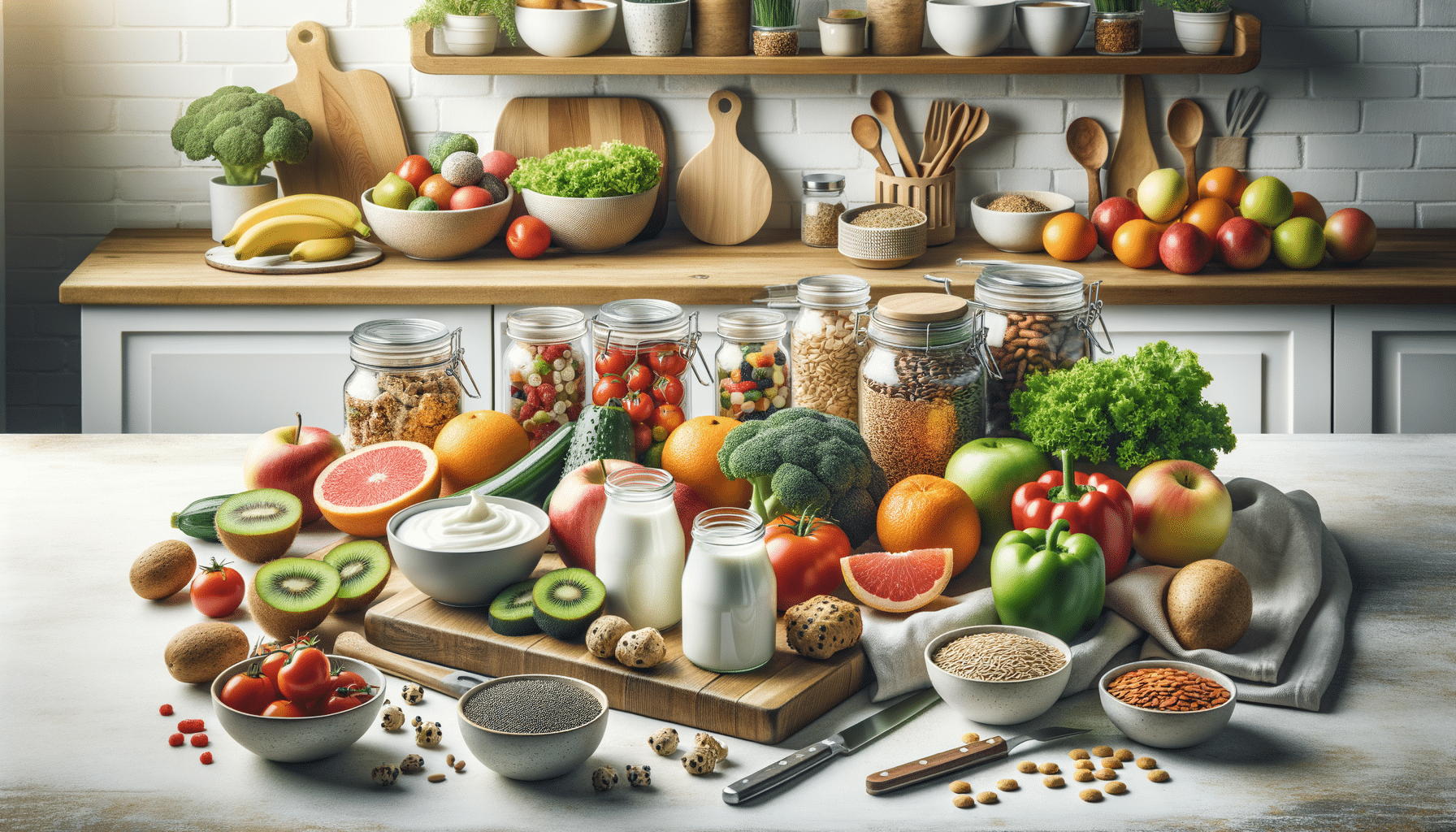
Why Gut Healthy Foods Deserve a Place in Every Kitchen
The Role of Gut Health in Overall Wellbeing
It’s easy to overlook, but your gut plays a much bigger role in your wellbeing than you might think. We’re not just talking about digestion — your gut is closely linked to immunity, mood, energy levels, and even skin health. That’s why gut healthy foods are more than just a trend; they’re a key part of long-term wellness.
Feeding your gut the right stuff means supporting the trillions of microbes living in your digestive system. These microbes help break down food, create essential nutrients, and keep the “bad” bacteria in check. When your gut is happy, it shows — think clearer skin, better sleep, less bloating, and steadier energy throughout the day.
Adding gut friendly ingredients to your meals doesn’t have to be complicated. From fermented foods to fibre-rich veggies, it’s all about making small changes that build a stronger, more balanced digestive system from the inside out.
What Makes a Food Gut-Healthy, Anyway?
So, what exactly makes a food good for your gut? It usually comes down to two things: fibre and live cultures. Fibre acts like a broom, sweeping your digestive tract clean while feeding the good bacteria. You’ll find it in foods like oats, beans, apples, and leafy greens. Then there are fermented options like yoghurt, kimchi, sauerkraut, and kefir — all packed with live probiotics.
Gut healthy foods help maintain a diverse microbiome, which is essential for overall health. The more variety you feed your gut, the more resilient it becomes. And you don’t need to go all-in on unfamiliar superfoods. Everyday ingredients like garlic, bananas, and even dark chocolate can support your gut flora.
Ultimately, it’s not about perfection. It’s about building habits that make your gut (and the rest of you) feel more balanced. When your digestive system runs smoothly, everything else tends to fall into place — no expensive shortcuts required.
Simple Ways to Add More Gut Healthy Foods to Your Day
Improving your gut health doesn’t mean overhauling your entire diet overnight. It’s often the small, consistent tweaks that make the biggest difference. Try starting your morning with a bowl of plain yoghurt topped with berries and chia seeds. That combo delivers fibre, probiotics, and antioxidants — all in one go.
Swap out white bread for wholegrain or seeded options, and reach for beans or lentils a few times a week. Not only do these keep things moving, but they also feed the good bacteria in your gut. Feeling adventurous? Add a spoonful of sauerkraut or kimchi to your lunch — they’re flavour-packed and full of probiotics.
Snacking smart also helps. A banana with almond butter, a handful of nuts, or a piece of dark chocolate can support your gut while keeping cravings in check. And don’t forget to stay hydrated — your gut lining relies on water to stay strong and flexible.
The best part? Once you start including more gut healthy foods, your body will likely tell you you’re on the right track. You might feel lighter, more energised, and less bloated — not bad for a few simple swaps. Over time, these small steps create lasting change that supports not just your gut, but your whole body.
Fibre: The Unsung Hero of Gut Health
Fibre is often hailed as one of the most essential components of a healthy diet, and for good reason. It plays a crucial role in maintaining gut health by acting as a natural cleaner for your digestive tract. Fibre-rich foods help to sweep out waste and toxins, keeping your digestive system running smoothly.
There are two types of fibre: soluble and insoluble. Soluble fibre dissolves in water and forms a gel-like substance, which can help lower blood cholesterol and glucose levels. You can find it in foods like oats, peas, beans, apples, and carrots. Insoluble fibre, on the other hand, promotes the movement of material through your digestive system and increases stool bulk, which can be beneficial for those who struggle with constipation. Whole-wheat flour, wheat bran, nuts, and many vegetables are good sources of insoluble fibre.
Incorporating a variety of fibre sources into your diet is key to supporting a healthy gut. Aim for a balance of both soluble and insoluble fibre to ensure your digestive system functions optimally. Not only does fibre support gut health, but it also contributes to a feeling of fullness, which can aid in weight management.
Fermented Foods: A Taste of Tradition and Health
Fermented foods have been a staple in various cultures for centuries, celebrated not only for their unique flavors but also for their health benefits. These foods undergo a process of lacto-fermentation, where natural bacteria feed on the sugar and starch in the food, creating beneficial enzymes, b-vitamins, omega-3 fatty acids, and various strains of probiotics.
Some popular fermented foods include yoghurt, kimchi, sauerkraut, kefir, and kombucha. These foods are rich in probiotics, which are live microorganisms that can provide health benefits when consumed in adequate amounts. Probiotics help balance the friendly bacteria in your digestive system, which is crucial for gut health. They can also enhance nutrient absorption, improve digestion, and boost the immune system.
Incorporating fermented foods into your diet can be as simple as adding a spoonful of sauerkraut to your salad, enjoying a glass of kefir with breakfast, or having a side of kimchi with your dinner. The key is to start with small amounts and gradually increase your intake, allowing your gut to adjust to the influx of probiotics.

